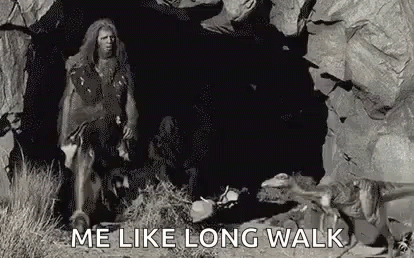HOW TO LEARN ANYTHING FASTER IN 24 HOURS– 5 Successful Secrets

Today we're talking about learning. You hear often the phrase, that Life Long Learning is essential as an entrepreneur especially in times of the Digital Renaissance. But when do you have the time for so much learning?!– you may ask.
I just don't have the time for it! With a new baby in the house and juggling multiple on-going projects, I know exactly how you feel.
So let me tell you my 5 successful secrets to learning faster.
You are probably a learning junkie if you really want to understand the things around you. I believe, one can't just skim the surface and pretend to half-a** new information. It is a blessing 🙏 and an illness 😂 at the same time. Let me share some deep insights– for you to take and run with it, if you want.
Now, learning has probably been one of my superpowers since I was very young.
But learning how to be a fast learner is one of those secret skills that no one ever really teaches you, especially once you have left university or the school system. And especially in the Digital Renaissance– which nobody even knew about back in the days when I was at school.
And these days, even though I don't have more exams to prepare for, learning is still a huge part of my daily schedule:
- Testing out different large language models (LLMs)
- Understanding the tax regulations for my business
- Trying to get better at making YouTube videos
- Changing my workout to drop some belly fat
- Picking up new software to leverage AI
- Trying to better run a lean business
- Learning how to be a better father
all of this demands life long learning. We've got around 100 billion neurons in the brain, for sure a few of them can make the magic happen!

Malcolm Gladwell says in his book, Outliers: The Story of Success, that you need 10,000 hours to become an expert in anything new but who has that much time these days? 10,000 hours is a full-time job for 5 years!
You have to ask yourself before you begin, what is the purpose of this– also what level am I aiming for? Most of us don't aim to become the expert but wish to be fairly good or have a good understanding of the topic. So how long does it take from knowing absolutely nothing to then reaching "pretty good?"
Approximately 20 hours– according to Josh Kaufman. Let's just say 24 hours for the sake of simplicity– 1 full day of focused, deliberate practice into one thing– you will reach this level of being "pretty good."
1. Tip number one is to begin with a winning mindest
Now I use the word "winning" to make a clear point. Learning something new, is not always easy-peasy and as smooth as one would like. If you have had a few bad experiences and failed to learn something a few times, you really need to shake the anxieties that come from learning out of your head before you start. I will tell you why you should not fear failing.
We don't get taught how to learn– schools and people just expect that you'd somehow naturally pick it up successfully. How absurd, right?
I always tell myself that as long as I put in the time and effort, I can learn everything. Remember, we are not trying to learn anything perfectly here. Just enough for whatever you need. If you can attach a positive emotion to the learning, motivate from the rewards that you'll see later, you are much more likely to remember the information later on.
Set yourself up for a little bit of failure. If your learning a sport, make it a bit more difficult and challenging so you make mistakes and improve your skills. Because when you make mistakes your brain releases neuromodulators that improve your attention. These mistakes which you have made, send signals to the brain that something needs to change. In these moments of frustration when you fear failing, actually your brain is working hard to change.
In the book, "Make It Stick: The Science of Successful Learning," written by Peter Brown and psychology researchers Henry Roediger III and Mark McDaniel, they call these "desirable difficulties" actually a sign of effective learning. Neuroplasticity means our brains are plastic– in other words, it can grow, adapt and change and we are accessing it each time we are learning anything new.
"Learning is deeper and more durable when it’s effortful. Learning that’s easy is like writing in sand, here today and gone tomorrow."
– Make It Stick
2. Leverage micro-learning
Decide exactly what you want to be able to do, how much you want or need to learn.
What are the parts that I actually need to learn and begin with those first.
Know your "why."
Break down complex information into small, manageable chunks that can be digested in short, focused sessions. This technique works really well with limited time availability. I use tools like Obsidian to take notes and document the information so I can keep track of each bite-sized information pieces that I have learned. Obsidian creates links between all my digital notes which makes revisiting and reinforcing forgotten concepts convenient and exciting. I am not sponsored by Obsidian but I cannot express how much I love the tool. In my opinion, it is the best note-taking app at the moment. You can find more on Obsidian in the video link at the end, check it out if you are interested. I digress.
Now, whenever we're learning anything, it's really tempting to kind of learn it in the background, like practicing the guitar while watching TV or something like that.
But obviously, when we're fully focused on the thing that we're learning, our brain learns the thing a lot better. We want to optimize our focus.
The five minute rule– which is a general tip for productivity as well, is that if we want to do something and we're finding ourselves having difficulty in starting out doing the thing, like actually getting started, overcome the activation energy with this method. The five minute rule says that we just have to convince ourself that we're going to do the thing for five minutes. This is a great solution when you feel burdened by the commitment...
And then after we've done it for five minutes, we're allowed to just not do it– feel a sense of positive accomplishment and move on to the next task on our list.
But of course, I find that if I've been practicing the guitar or playing the cello for five minutes, I do then want to actually continue to practice for another 30 minutes or so because I am in the flow.
3. Full attention is crucial
Surprisingly enough, 20 minutes of exercise can give you 2 hours of focused attention afterwards– according to neuroscientist Dr. Lila Landowski. Studies have shown that regular exercise improves your memory. I know, you are rolling your eyes when you hear the word– exercise. But it can actually increase the size of your brain responsible for learning and memory! It helps create new brain cells and boosts your cognitive ability which helps you to think. What can I say, humans are made to keep moving!

It may sound obvious but we are designed to focus on one thing at a time. Even if it is for five minutes... if you are not fully focused, then you will have a harder time retaining that information. A little bit of stress can also actually help you learn better and reach peak performance. But of course– chronic stress does completely the opposite and destroys your memory, as well as other parts of your body, so be careful with your stress levels.
You need to minimize distractions to focus on the learning.
Another thing that's really helpful is to just put your phone away– far from your reach. I try to check social media only late in the evening– when my brain is already fried because I have used the best hours of the day for focused productivity.
4. Find opportunities for immersion: utilize multimodal learning
Diversify the formats in which you consume information. You can learn practically anything you want for free in the Digital Renaissance. Watching tutorials on YouTube, listening to podcasts, reading the latest articles, joining online discussion groups and so on, allow you to see the information from different angles and can improve your understanding and retention exponentially faster. Don't sit down with one single book you chose from the bookstore and expect that one source to guide you all the way.
I go through plenty of YouTube videos from people that are a few steps ahead of me and gain their knowledge and discoveries before going into my own learning process. It is like doing a full due-diligence or research of how to learn that skill and then going with the best option for me.
So there's a great book called "Ultra Learning" by Scott Young, where he talks about his journey through learning languages and becoming fluent in a language in three months.
And the key to that, as all language learners say, is immersion, just being as immersed in the language as possible.
"If you want to learn something quickly, you need to immerse yourself in that thing and make your learning process as active as possible."
– Ultra Learning
But of course, we can't afford to be always flying around to Spain or Japan simply to be immersed in the proper environment to learn the language faster. In the Digital Renaissance, if you can't find a way in the real world, you can find active online communities that struggle to learn the same skill as you or can even guide you through different steps so you don't have to go through it all alone.
The best way I get immersed into what I learn on a daily basis easily is by seeing and hearing at the same time. Whenever it is possible, have my Kindle and Audible apps running at the same time and you can synchronize the two (I ❤️ Whispersync!) – so that I really immerse deep into the new information by triggering both of my senses at the same time. Anytime you are trying to better remember new things you recently learned, you want them to be as multi-sensory as possible.
5. It is all about spaced repetition
I am a huge fan of repetition!Repeat that thing you are trying to learn as many times as you can. Repetition is key to learning. At the cellular level, it will reinforce those new pathways and connections in your brain, so it becomes easier to remember.
Basically there's a concept called the forgetting curve that was discovered by a chap called Ebbinghaus in the 1800s.
And the forgetting curve is that whenever we learn anything, whether it's like a fact or a skill or whatever, we're just gonna forget it and our memory for the thing is gonna decay over time.
And so we have to keep on practicing or testing ourselves on the thing to actually continue to have our brain kind of use up space for that kind of thing. But thankfully we can combat the forgetting curve by using this concept of spaced repetition. This helps what you have learned to move from short-term memory to long-term memory.
When we don't use our muscles, our muscles are gonna atrophy and they're going to get smaller. Equally with our brain, if we learn, let's say a language when we were five years old and then we don't use it for the next 10 years, we're actually going to forget most of the language because our brain doesn't need to have the information in store anymore.
Of course, this applies to any other skill as well. Hence repeat the things important to you at spaced intervals. So let's say I might learn a song on the guitar on day one and then I might repeat it again tomorrow. And then I might test myself on it again next week and then next month and then six months from now.
If I've spaced my repetitions enough, eventually playing that song is in my muscle memory– it's in my long-term memory and I won't need to practice it anymore and can play it whenever I want.
Now, if you're trying to learn something that has specific facts, there's all sorts of different apps that you can use to help with spacing.
But the App that is second to none – and which I use on a daily basis – is Obsidian. As promised above, please find the video below to learn more about this powerful tool – my essential companion to go from Consumer to Creator! 🚀
